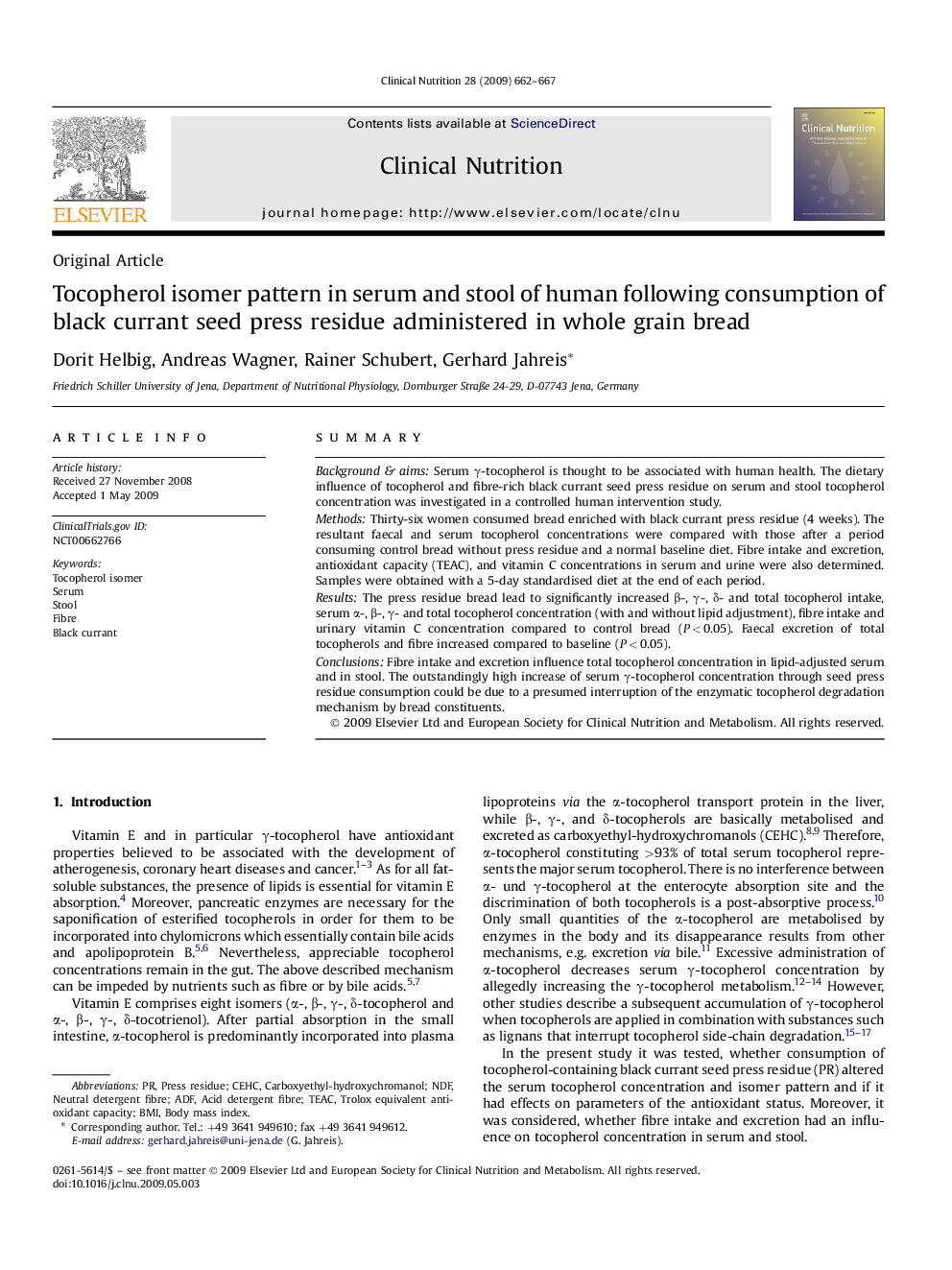| Article ID | Journal | Published Year | Pages | File Type |
|---|---|---|---|---|
| 2687341 | Clinical Nutrition | 2009 | 6 Pages |
SummaryBackground & aimsSerum γ-tocopherol is thought to be associated with human health. The dietary influence of tocopherol and fibre-rich black currant seed press residue on serum and stool tocopherol concentration was investigated in a controlled human intervention study.MethodsThirty-six women consumed bread enriched with black currant press residue (4 weeks). The resultant faecal and serum tocopherol concentrations were compared with those after a period consuming control bread without press residue and a normal baseline diet. Fibre intake and excretion, antioxidant capacity (TEAC), and vitamin C concentrations in serum and urine were also determined. Samples were obtained with a 5-day standardised diet at the end of each period.ResultsThe press residue bread lead to significantly increased β-, γ-, δ- and total tocopherol intake, serum α-, β-, γ- and total tocopherol concentration (with and without lipid adjustment), fibre intake and urinary vitamin C concentration compared to control bread (P < 0.05). Faecal excretion of total tocopherols and fibre increased compared to baseline (P < 0.05).ConclusionsFibre intake and excretion influence total tocopherol concentration in lipid-adjusted serum and in stool. The outstandingly high increase of serum γ-tocopherol concentration through seed press residue consumption could be due to a presumed interruption of the enzymatic tocopherol degradation mechanism by bread constituents.
